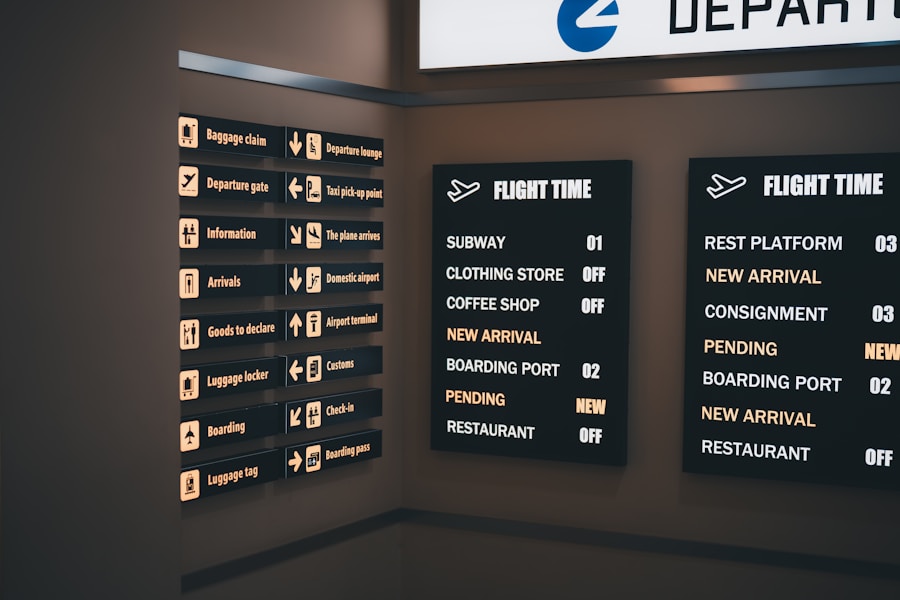Transport strikes can have a significant impact on businesses, particularly those that rely on a large workforce to operate. When public transport is disrupted, employees may struggle to get to work, leading to staff shortages and potential disruptions to productivity. This can be particularly challenging for businesses in urban areas where public transport is the primary mode of commuting for employees. Additionally, transport strikes can also impact the delivery of goods and services, leading to delays and potential customer dissatisfaction.
Furthermore, transport strikes can also have financial implications for businesses, as they may need to incur additional costs to find alternative transport options for employees or to cover the costs of delayed deliveries. In some cases, businesses may also face reputational damage if they are unable to meet customer demands due to transport strikes. It is therefore crucial for businesses to understand the potential impact of transport strikes and to develop contingency plans to mitigate these effects.
Developing a Contingency Plan for Staff Shortages During Transport Strikes
In order to mitigate the impact of transport strikes on staff shortages, businesses should develop a comprehensive contingency plan. This plan should include measures to ensure that essential operations can continue even in the event of transport disruptions. One key aspect of this plan is to identify critical roles within the organisation and to develop strategies to ensure that these roles can be filled even in the absence of regular staff.
Businesses should also consider implementing flexible working arrangements, such as remote working or flexible hours, to allow employees to work around transport disruptions. Additionally, businesses should explore alternative transport options for employees, such as providing shuttle services or reimbursing employees for alternative transport costs. By developing a contingency plan for staff shortages during transport strikes, businesses can ensure that operations continue smoothly even in challenging circumstances.
Communicating with Employees About Contingency Plans
Effective communication with employees is crucial when developing contingency plans for transport strikes. It is important for businesses to keep employees informed about the potential impact of transport strikes and the measures that are being put in place to mitigate these effects. This can help to alleviate concerns and ensure that employees are aware of the support that is available to them during transport disruptions.
Businesses should also provide clear guidance to employees on how they can access alternative transport options or take advantage of flexible working arrangements. By keeping employees informed and engaged, businesses can ensure that staff morale remains high even in the face of transport strikes. Additionally, businesses should also seek feedback from employees on the effectiveness of contingency plans and make adjustments as necessary to ensure that they are meeting the needs of the workforce.
Identifying Key Roles and Responsibilities During Staff Shortages
During transport strikes, it is essential for businesses to identify key roles and responsibilities within the organisation and to develop strategies to ensure that these roles can be filled even in the absence of regular staff. This may involve cross-training employees to perform multiple roles or developing a pool of temporary staff who can be called upon in times of need.
Businesses should also consider implementing a clear chain of command and communication channels to ensure that essential operations can continue smoothly even in the absence of regular staff. By identifying key roles and responsibilities during staff shortages, businesses can ensure that critical functions are not disrupted even in challenging circumstances.
Exploring Alternative Transport Options for Employees
In order to mitigate the impact of transport strikes on staff shortages, businesses should explore alternative transport options for employees. This may involve providing shuttle services, arranging carpooling schemes, or reimbursing employees for alternative transport costs. By providing employees with access to alternative transport options, businesses can ensure that staff can continue to commute to work even in the face of transport disruptions.
Businesses should also consider partnering with local transport providers to develop tailored solutions for their workforce. By exploring alternative transport options for employees, businesses can ensure that staff shortages are minimised even in challenging circumstances.
Utilising Remote Working and Flexible Hours to Mitigate Staff Shortages
Remote working and flexible hours can be effective strategies for mitigating staff shortages during transport strikes. By allowing employees to work from home or to adjust their working hours, businesses can ensure that essential operations continue even in the face of transport disruptions. This can also help to alleviate the stress and inconvenience that employees may experience during transport strikes.
Businesses should provide clear guidance to employees on how they can access remote working arrangements and should ensure that they have the necessary technology and support in place to facilitate this. By utilising remote working and flexible hours, businesses can ensure that staff shortages are minimised and that operations continue smoothly even in challenging circumstances.
Reviewing and Refining Contingency Plans for Future Transport Strikes
Finally, it is important for businesses to regularly review and refine their contingency plans for future transport strikes. This may involve seeking feedback from employees on the effectiveness of existing measures and making adjustments as necessary. Businesses should also stay informed about potential transport disruptions and be prepared to implement their contingency plans at short notice.
By regularly reviewing and refining their contingency plans, businesses can ensure that they are well-prepared to mitigate the impact of future transport strikes on staff shortages and operations. This proactive approach can help businesses to minimise disruptions and maintain productivity even in challenging circumstances.
